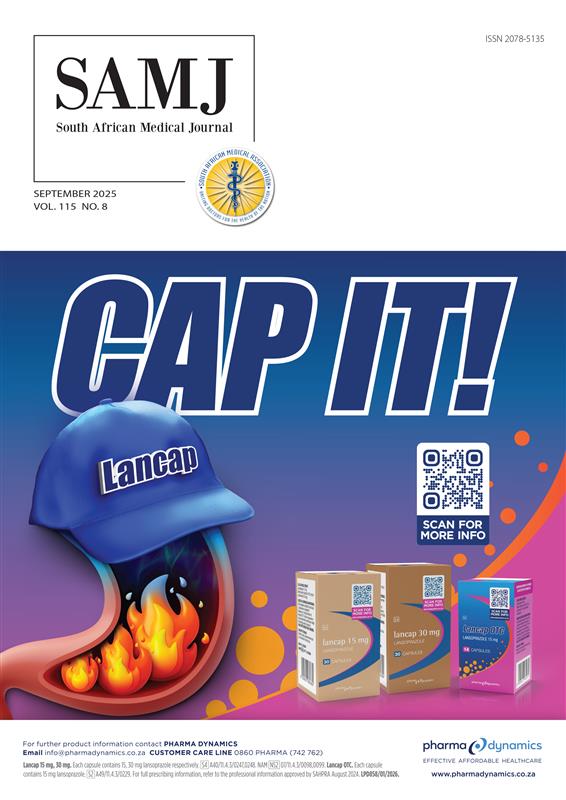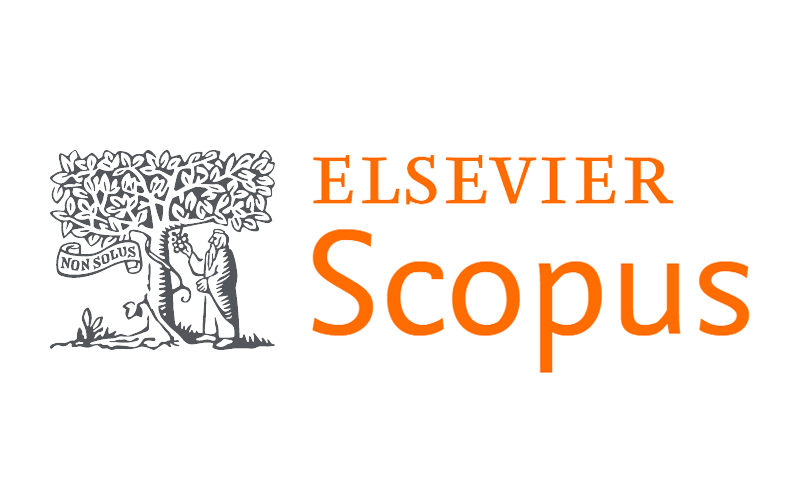The impact of the MMed research requirement on registrar training and specialist registration in South Africa: An internet e-survey
DOI:
https://doi.org/10.7196/SAMJ.2025.v115i8.2788Keywords:
MMed research, Regsitrar training , Specialist registrationAbstract
Background. Since 2011, the Health Professions Council of South Africa (HPCSA) requires completion of a Master of Medicine (MMed) research component by registrars, before specialist registration.
Objective. To determine the impact of the research requirement on training and specialist registration.
Methods. A closed, de-identified cross-sectional e-survey was distributed to College of Medicine of South Africa (CMSA) Fellows passing their specialist examination between 2018 and 2022. The primary outcome was the proportion of registrars completing their MMed and clinical training within the stipulated time. Secondary outcomes were: (i) proportion unlikely to complete the MMed during training; (ii) factors contributing to MMed completion; (iii) publication rates; and (iv) whether a structured learning programme was preferred for research methodology. A Likert scale identified factors influencing completion, including administrative aspects (supervision, statistical support, ethics approval process, time allocated for research, funding, and marking timelines), and the influence of the requirement for the performance of research on mental wellness.
Results. The survey invitation was emailed to 3 646 participants; 564 (15.5%) responded, across 26 specialist CMSA disciplines. Overall, 273/564 (51.6%) specialists completed their MMed research component and CMSA examinations within the stipulated registrar training completion time. For secondary outcomes, 230/563 (40.8%) respondents required extension of the stipulated training time. In 291/564 (48.4%), the MMed was not completed during the stipulated training time, with 61/291 (21.0%) respondents not receiving an extension for completion. For 183/563 (32.5%) respondents, MMed submission was required by the university before specialist examination. Of these, 121/183 (66.1%) wrote their examination within the training time; 44/183 (24%) within 6 months of completion; and 18/183 (9.8%) >6 months after completion.
Likert scale responses showed that >50% of respondents considered all the factors being assessed to be a barrier to the conduction of their research, with the exception of good supervision (304/563, 54%). The strongest associations with successful completion of the MMed research were good supervision (54%), access to statistical support (40%), and an uncomplicated and efficient ethics approval process (39.6%). Overall, 229/564 (40.62%) MMed research components were published. A structured research learning programme was preferred by 413/564 (73.2%) respondents. A total of 335/564 (59.4%) indicated that the MMed did not add value to training.
Conclusion. Nearly half of registrars could not register as specialists when their training was complete, due to non-completion of their MMed research component. All the factors examined were considered to be contributing to non-completion of the MMed by the majority of participants, with the exception of access to good supervision. A structured integrated learning programme, including research methodology, statistics, appraisal of the literature, and scientific writing, should be introduced as an alternative to the requirement for original research, which should no longer be compulsory. Registrars wishing to do original research should be strongly supported.
References
1. Health Professions Council of South Africa. Form 57 – application for registration: Independent practice – (medical practitioner). https://www.hpcsa.co.za/?contentId=44 (accessed 28 October 2024).
2. National Department of Health. Strategic plan 2014/15 - 2018/19. Pretoria: NDoH, 2014.
3. Szabo CP, Ramlall S. Research competency and specialist registration: Quo vadis? S Afr Med J
2016;106(12):1183-1185. https://doi.org/10.7196/SAMJ.2016.v106.i12.11217
4. Biccard BM, Dyer RA, Swanevelder J, Coetzee JF, Shafer SL. Is the HPCSA requirement for a research
dissertation for specialist registration the best option? S Afr J Anaesth Analg 2017;23(4):4-6.
5. Glasziou P, Altman DG, Bossuyt P, et al. Reducing waste from incomplete or unusable reports of biomedical research. Lancet 2014;383(9913):267-276. https://doi.org/10.1016/s0140-6736(13)62228-x 6. Harris PA, Taylor R, Thielke R, Payne J, Gonzalez N, Conde JG. Research electronic data capture (REDCap) ‒ a metadata-driven methodology and workflow process for providing translational research
informatics support. J Biomed Inform 2009;42(2):377-381. https://doi.org/10.1016/j.jbi.2008.08.010
7. Eysenbach G. Improving the quality of Web surveys: The Checklist for Reporting Results of Internet
E-Surveys (CHERRIES). J Med Internet Res 2004;6(3):e34. https://doi.org/10.2196/jmir.6.3.e34
8. Sullivan GM, Artino AR, Jr. Analyzing and interpreting data from Likert-type scales. J Grad Med Educ
2013;5(4):541-542. https://doi.org/10.4300/jgme-5-4-18
9. Grossman E. How long does it take a registrar to complete the compulsory research project enabling
specialist registration? S Afr Med J 2019;109(4):254-258. https://doi.org/0.7196/SAMJ.2019.v109i4.13377 10. Parry J, Coovadia A. A quantitative assessment of the time to complete the Master of Medicine research thesis in a cohort of paediatrics registrars at the University of the Witwatersrand, South Africa. S Afr
Med J 2024;114(10):43-48. https://doi.org/10.7196/SAMJ.2024.v114i10.2237
11. Barnard M, Jackson BS. South African surgical trainees Master of Medicine dissertation survey. S Afr
J Surg 2023;61(1):7-13.
12. Patel P, Naidoo P, Smith M, Loveland J, Govender T, Klopper J. South African surgical registrar
perceptions of the research project component of training: Hope for the future? S Afr Med J
2016;106(2):169-171. https://doi.org/10.7196/SAMJ.2016.v106i2.10310
13. Stehlik P, Withers C, Bourke RC, et al. Mandatory research projects during medical specialist
training in Australia and New Zealand: A survey of trainees’ experiences and reports. Med J Aust 2025;222(5):231-239. https://doi.org/10.5694/mja2.52611
Downloads
Published
License
Copyright (c) 2025 B M Biccard, R A Dyer, J Fagan, N Vickery, J L Orrock

This work is licensed under a Creative Commons Attribution-NonCommercial 4.0 International License.
Licensing Information
The SAMJ is published under an Attribution-Non Commercial International Creative Commons Attribution (CC-BY-NC 4.0) License. Under this license, authors agree to make articles available to users, without permission or fees, for any lawful, non-commercial purpose. Users may read, copy, or re-use published content as long as the author and original place of publication are properly cited.
Exceptions to this license model is allowed for UKRI and research funded by organisations requiring that research be published open-access without embargo, under a CC-BY licence. As per the journals archiving policy, authors are permitted to self-archive the author-accepted manuscript (AAM) in a repository.
Publishing Rights
Authors grant the Publisher the exclusive right to publish, display, reproduce and/or distribute the Work in print and electronic format and in any medium known or hereafter developed, including for commercial use. The Author also agrees that the Publisher may retain in print or electronic format more than one copy of the Work for the purpose of preservation, security and back-up.





